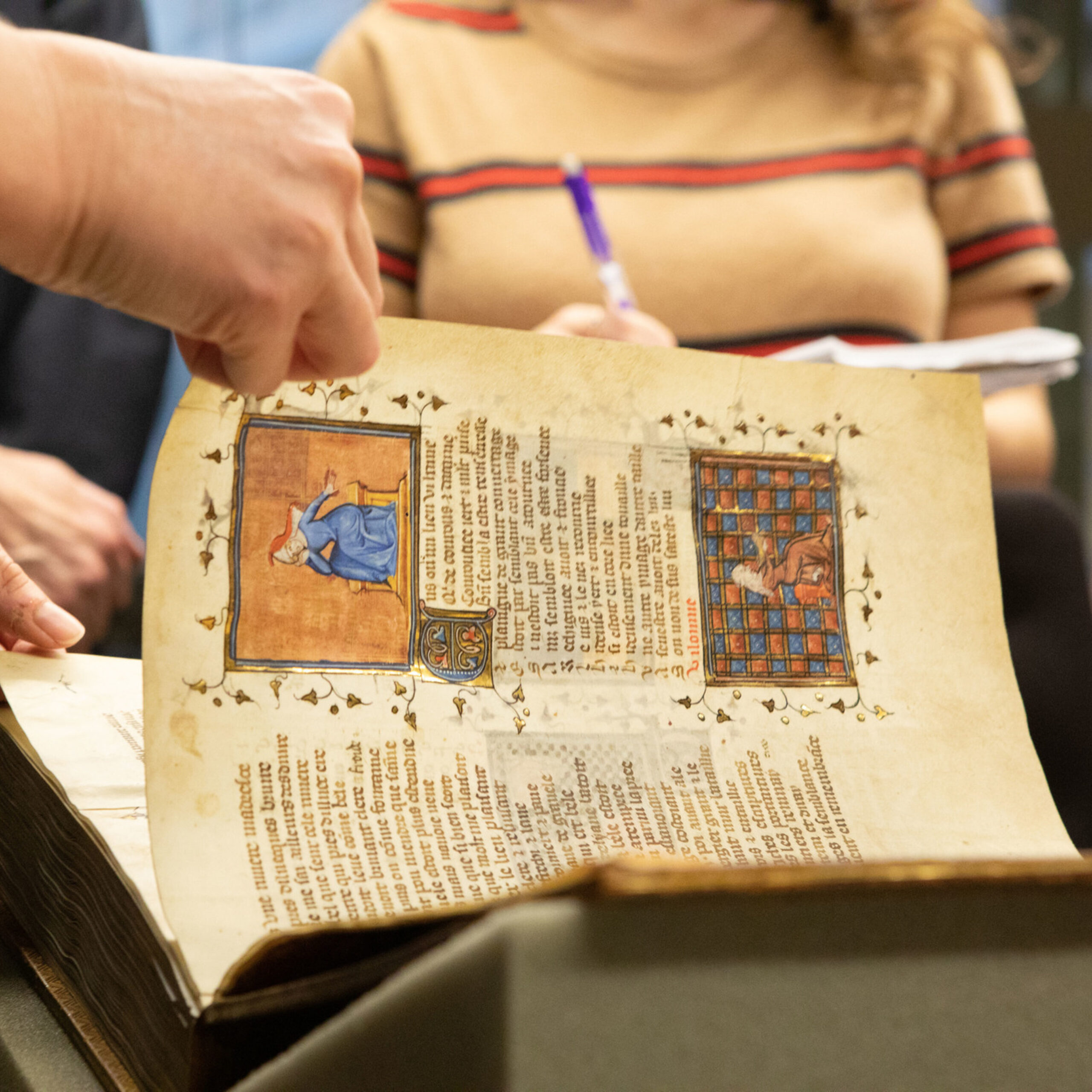Where can you find trinkets Albert Einstein collected in Japan, diaries and manuscripts by Toni Morrison, and an autographed manuscript of The Great Gatsby? None other than our very own Harvey S. Firestone Memorial Library of course! Welcome to the wonderful world of one of Princeton’s coolest resources: Firestone special collections. Basically, it contains anything in the University’s possession that is rare, valuable, and/or too old and fragile to be removed from the library. I learned about special collections recently through my AAS 244 class on Pre-20th Century Black Diaspora Art in which we often check out art and related manuscripts in the special collections.
Continue reading How and Why to Use Firestone Special CollectionsPrinceton from a Student’s Perspective: The Most Legendary Courses at Princeton University
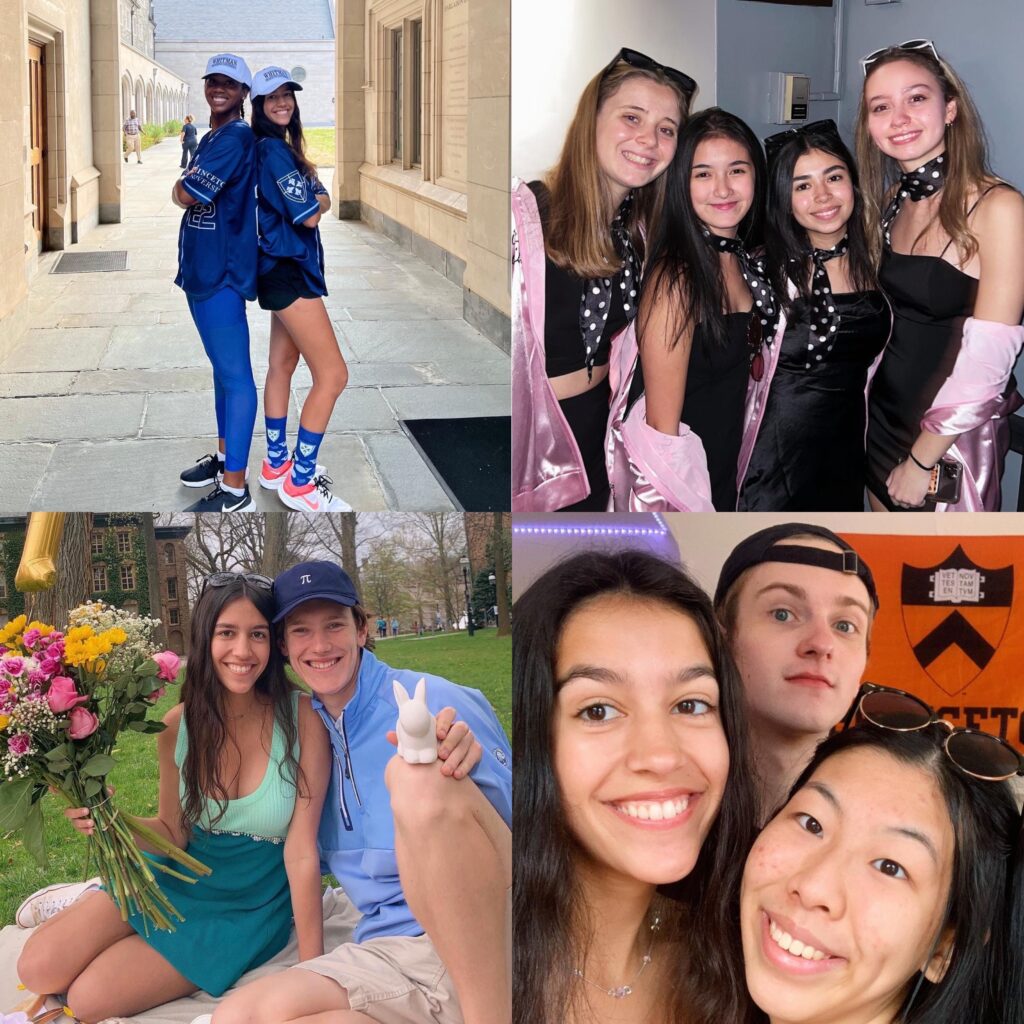
Thank you to the best friends in the world for sending in their favorite courses!
“Does anyone know a good English class?” “I need to fulfill my history requirement.” “I am looking for a chill, creative P/D/F course.” Everyone is searching for the best schedule possible and I know that many of you are open for suggestions. In my last post, I wrote about my favorite courses at Princeton as a SPIA major interested in law and service (see post here). But, I understand that every Princeton student is unique, so I have spoken with classmates and friends within other majors to better understand the full Princeton experience. Thus, without further ado, here are the most unforgettable courses that they have taken at Princeton.
Continue reading Princeton from a Student’s Perspective: The Most Legendary Courses at Princeton UniversityThe Creation of TigerResearch: An Interview with Vivek Kolli ’24
Vivek Kolli ’24 is Vice Chair of the Julis-Rabinowitz Center for Public Policy and Director of Marketing and Outreach for Scholars of Finance.
A few weeks ago, I interviewed Vivek Kolli ‘24, a junior in the Operations Research and Financial Engineering (ORFE) department. Vivek is one of the three developers for TigerResearch, a comprehensive platform that allows for students to easily navigate through their database of Princeton professors and their research areas. In our interview*, we discuss his vision for the platform, the importance of entrepreneurial ideas in driving the research process, and advice for students who would like to get involved with research at Princeton.
Continue reading The Creation of TigerResearch: An Interview with Vivek Kolli ’24Tips for Talking About Your Research
Sharing the discoveries you’ve made is not just extremely rewarding, but a necessary part of the research process because it ensures your findings can be put to use. Writing about your research is a tough obstacle to tackle in and of itself, but what I want to focus on today is the arguably more intimidating half of sharing your research: speaking about it. Both formats require demonstrating your command of the subject while also being engaging. Unlike writing about your research, where you generally have a well-defined goal from the get-go, you will find yourself speaking about your research in an enormous range of contexts. Here are three of my tips for talking about your research, whether summarizing your findings for your grandma or giving a formal presentation to a group of experts.
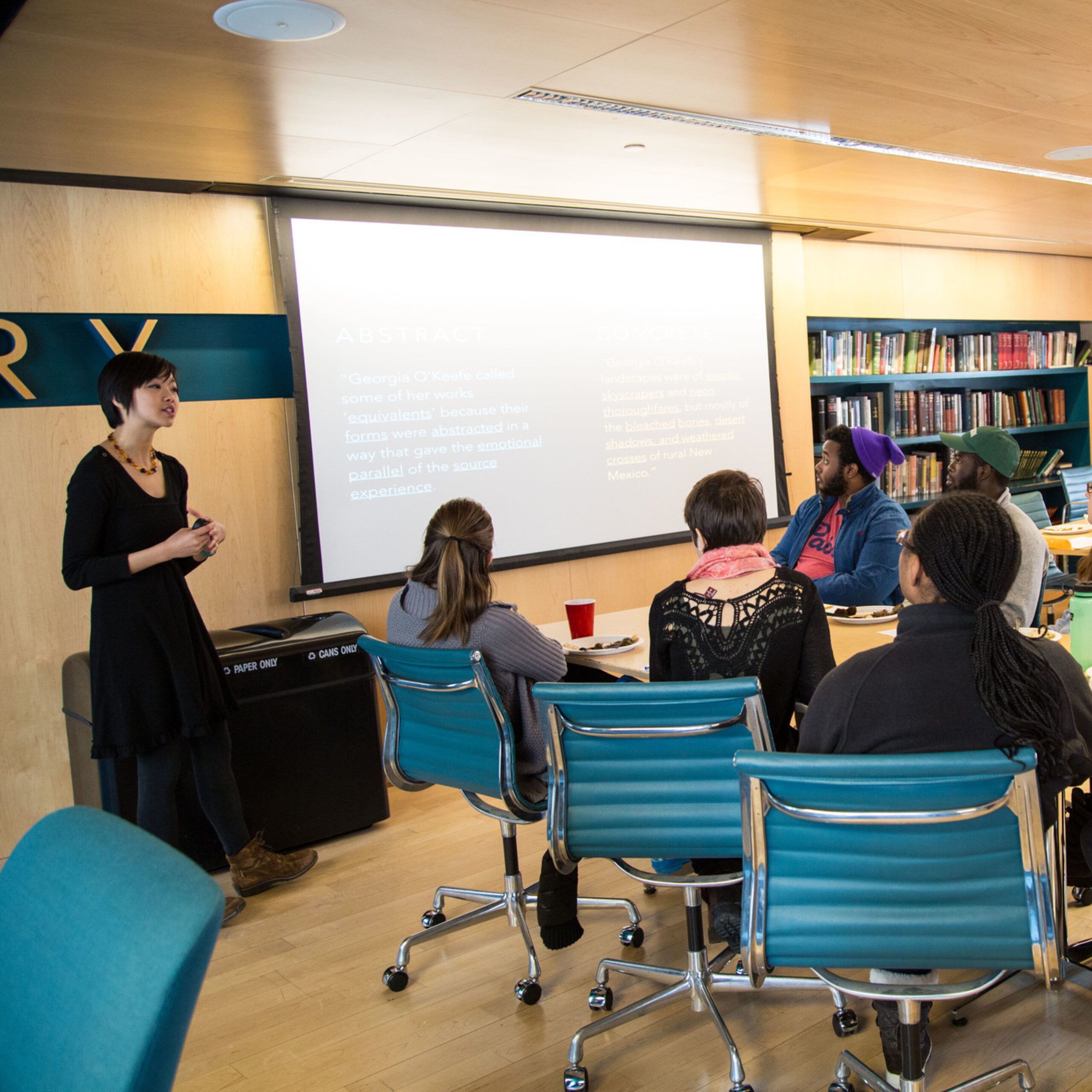
Opportunity Overwhelm

“Don’t let any opportunity pass you by.” Whether from parents, coaches, teachers, or other peers, chances are we’ve all had this phrase quoted to us at some point in our high school careers. Before Princeton, I more or less lived by it. I knew that opportunities had to be sought at all times everywhere. One thing I hadn’t planned for coming to Princeton, though, was the possibility of there being too many opportunities. When resources are abundant but time is scarce, how does one choose? How does one take advantage of opportunities that are exciting, meaningful, and fun for them without risking burnout? Read on for four recommendations on how you can make the most of your Princeton experience while maintaining a work/life balance.
Continue reading Opportunity OverwhelmThe Wonderful Act of Grabbing a Coffee with Your Professor
Princeton is a wonderful place. Among all the elements that make this university great, in my opinion, two stand out: the students and the professors. Students come from different backgrounds, with all sorts of fabulous experiences. And, in departments across campus, we have so many valuable professors – who are world-renowned in their respective fields – that make this place so amazing.
But, there sometimes tends to be a divide between these two important elements. In my encounters with my peers, I have often noticed that undergraduates find professors “intimidating” to reach. One of my friends even told me once that “I think my professor’s time is too valuable to be wasted on me.”
As a first-year student, I found the work of the professors in all of my classes very fascinating. But I was perhaps too shy to reach out to them to learn more about their work. What changed the game for me was that my residential college, Rocky, had organized a “Take your professor to dinner” night. Since it was a structured program planned by the college, it made it much easier for me to invite a professor for dinner. And I did. I invited my chemistry professor, and it turned out to be one of the best decisions I have made at Princeton so far. In fact, to this day, he is still an amazing mentor for me.
Continue reading The Wonderful Act of Grabbing a Coffee with Your ProfessorFrom Politics to Neuroscience: 5 Princeton Courses I’ll Never Forget
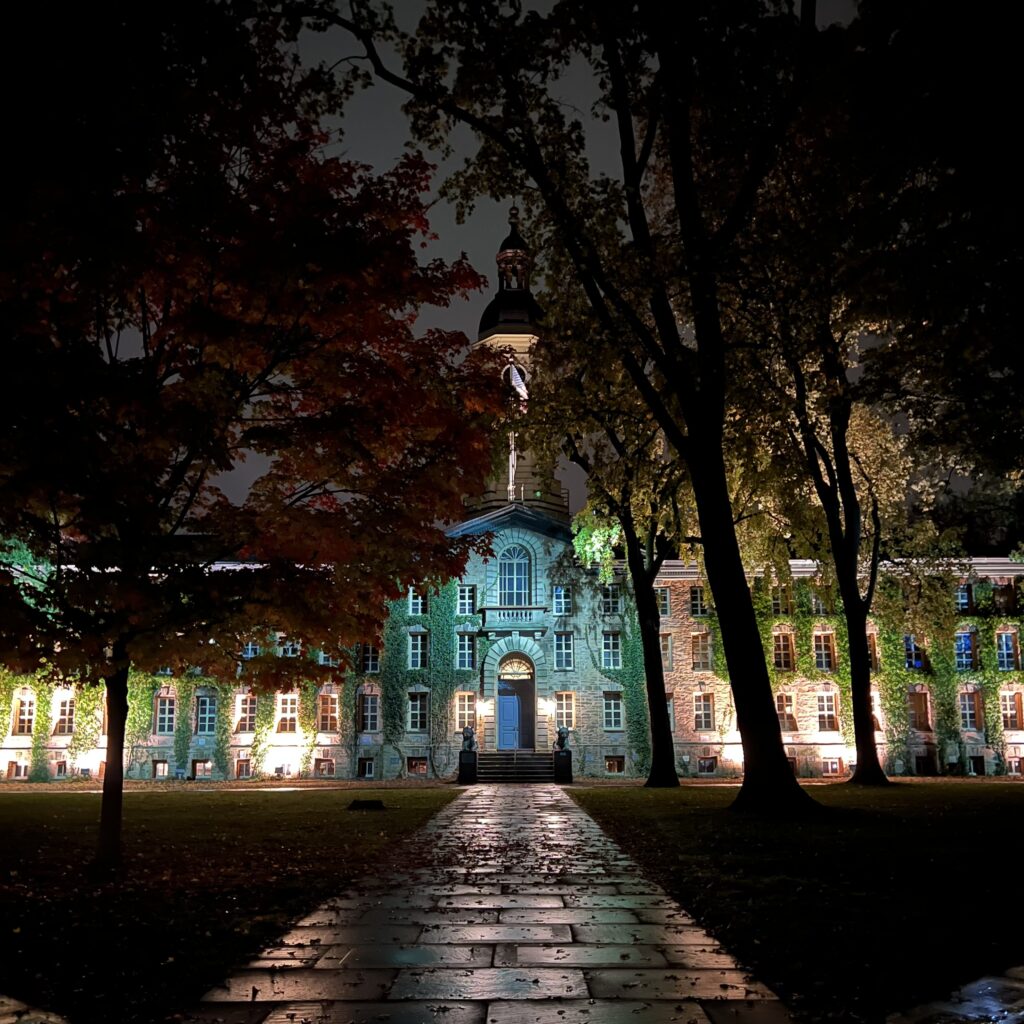
“I have to wake up at 6:23 AM for course enrollment?!” Yes. You do. But you got this! It’s true that course enrollment is still a month away, but it is never too early to start drafting your schedule to avoid this “oh no” early-bird moment. Generally, I recommend taking courses that excite you, even if they are outside of your major, because before you know it you’ll be an old senior like me wishing you had time to take more. Everyone has a different taste in classes. I am a SPIA major who is passionate about service, social justice, and law, but I have tried to take unique and expansive research-based classes. Thus, without further ado, here are 5 of my most memorable classes at Princeton, in no particular order, and why they might be of interest to you:
Continue reading From Politics to Neuroscience: 5 Princeton Courses I’ll Never ForgetMissed the First ReMatch Dinners? I Got You Covered
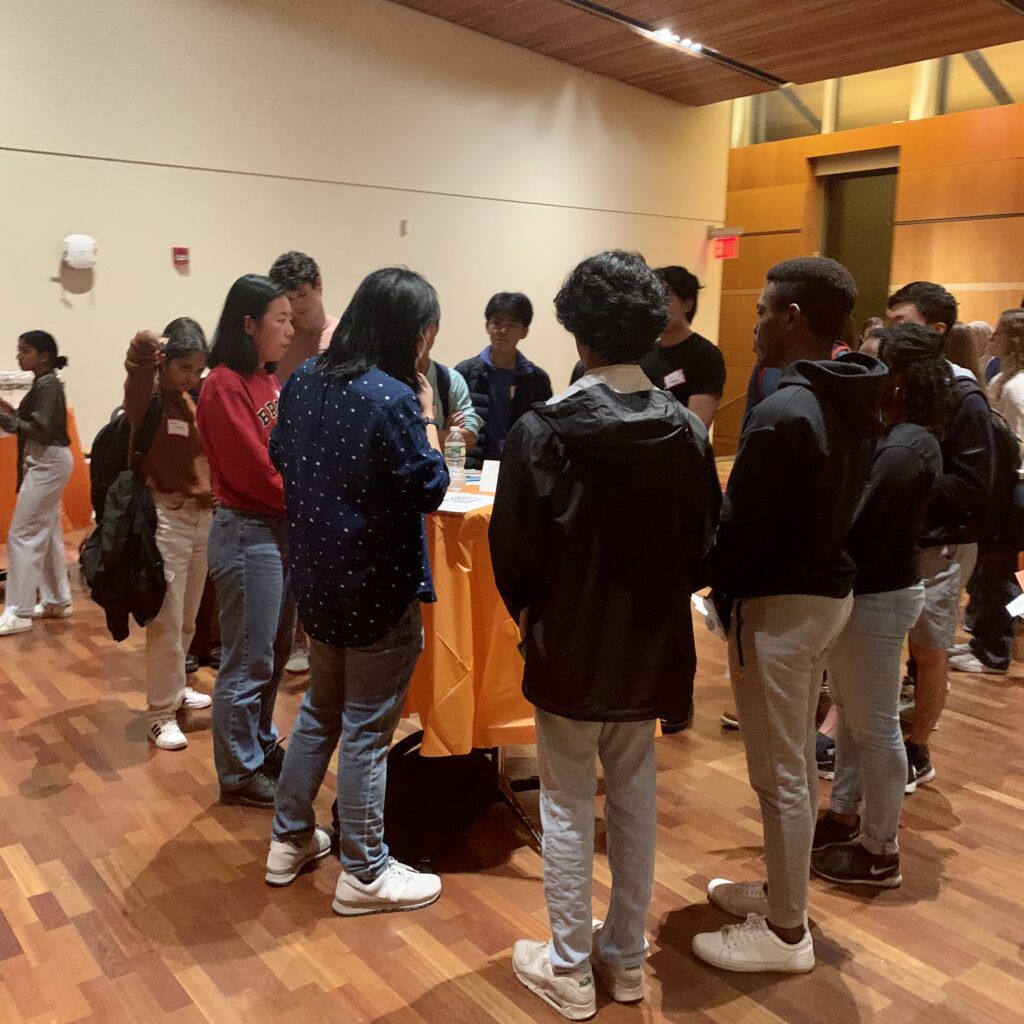
Princeton gives its farthest walks to its strongest academic weapons. Still, sometimes schlepping all the way to the Carl A. Fields (CAF) Center is just a bit too much. If you felt like this around 6:00pm on Tuesday October 4th or Thursday, October 13th, you just may have missed the first ReMatch dinner. No worries! I am here to fill you in on what you missed and hopefully convince you that the next one is worth the walk. First things first, ReMatch (developed and led by the Office of Undergraduate Research and the Graduate School) is a program that helps match first- and second-year undergraduates interested in research with graduate student and postdoc researcher mentors. Mentor and mentee pairs that develop potentially embark on a summer of research in Princeton fully funded by the university. At the dinners, students can eat catered food, mingle, and chat with researchers at tables.
Continue reading Missed the First ReMatch Dinners? I Got You CoveredTips for Writing about Your Research Experience (Even if You Don’t Think You Have Any)
If you’re someone who hasn’t yet done formal research in a university setting, one of the most intimidating parts of the process can be simply getting your foot in the door. Just like the way your options can seem very limited when applying for your first job, asking for a research position when you have no “experience” can seem discouraging — maybe even to the point of causing you to question whether you should apply in the first place. With that being said, there are some simple tips you can employ when applying for research positions to highlight the link between your existing interests and the work of the position for which you are applying.

A Budding Field: Finding Opportunities in Psychedelic Research

One goal for any budding researcher is to see their work have a tangible public impact. But, with endless hours spent in a lab or hunched over a computer, there are times where research can feel abstract or removed from reality. Neuroscience, in particular, faces this stereotype. True, many (including myself) believe that neuroscience holds the key to understanding our conscience and, by extension, our modern predicament. But the question remains: where can an aspiring neuroscientist find the life-altering research they seek?
Ironically, the answer might just lie in reality-altering substances. From neuroscience to public policy, psychedelics is a budding topic across many different fields of research. While Princeton itself is yet to enter the field, the Princeton Science of Psychedelics Club (PSPC) serves as the hub for all students interested in this emerging field. I sat down with PSPC and senior Neuroscience Major President Camilla Strauss to talk about how students interested in psychedelics research could learn more.
Continue reading A Budding Field: Finding Opportunities in Psychedelic Research
